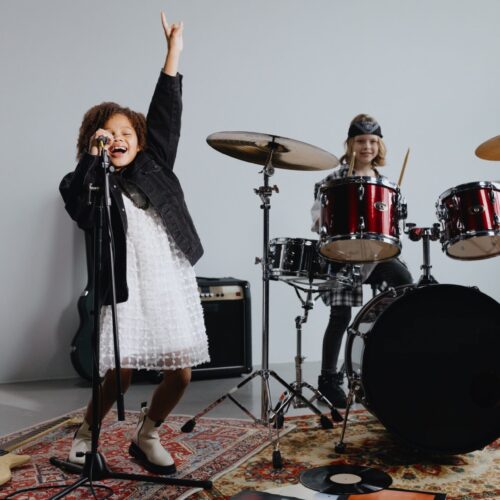Music Therapy Centered around Voicework to offer opportunity for connection

We are all searching for connection, whether that be a connection to ourselves or others. There is a deep need within all of us to be fully heard, seen, and understood.
“The experience of being literally heard and understood deeply, in some personally vital sphere, has its own kind of impact – whether of relief, of something at last making sense, a feeling or inner connection or somehow being less alone or of some other easing or enhancing quality” – Barrett-Lennard
In order for us to reach this level of connection, it is often necessary, to be honest and vulnerable. One way to facilitate this level of connection can be through group music therapy. When people sing and make music together, it enhances feelings of connectedness. I have always found singing and vocalising together fascinating. Something magical happens when we are actively making music with others.
In a research study, I conducted in 2020 titled: “Voicework within Music Therapy as part of rehabilitation for substance use disorders: creating opportunities for connection”. I found that Voicework (any form of using the voice to express oneself) created opportunities for both connections to self and others.
How does Voicework facilitate connection to self?
I have had multiple clients admit they don’t like their own voice, “I don’t have a good singing voice”, “I’m not confident enough”. We want to change ourselves on a daily. I wonder if we really need to change our voices to be more “acceptable”, or whether it’s more about getting to know our voices and being kind towards ourselves. The inner voice we use to talk to ourselves can often be harsh and unkind. Seeking to be seen, heard and understood by others can only happen once we are able to give ourselves the same grace.
How does Voicework facilitate connection to others?
There have been many studies that found singing together creates a sense of connectedness, and promotes group cohesion. This is done without all group members agreeing on social and political statements and topics. This sense of connectedness happens because people are called to listen and respond to each other within a musical structure. When we’re vocalising (this can be singing, humming or any other Voicework related activity) together we need to be aware of each other’s music. Not only is the sound and quality of the individual voice important, but the collective is also taken into account. The I, the you, and the we all become evident in the music. Through listening to ourselves, each other and the collective quality of the music there are multiple opportunities for us to influence, and be influenced by each other’s music.


Why Vocalising is important
Why is it important to be vocalising? Why not just engage in instrumental collective music-making? The voice is not just an instrument but it is a part of who you are. We use our voices daily to express ourselves and connect with others through language. The voice is also a metaphorical space where a lot of people have been devalued, dismissed, and ignored. How many of us have not experienced being told “you don’t know what you’re talking about”, “children should be seen and not heard”, “your voice is not welcome in this conversation”. If this is the case, which it is for many, seeking connection and healing through using the voice in a different way can be extremely meaningful.
Music is not only a means of connection but it is in itself connection. When we think of connection we often think of talking to others and finding common ground. But what if our common ground is the need for connection? Not only to others but to ourselves. What if we are able to see, hear and understand each other human to human. As Charl Jung said: “know all the theories, master all the techniques, but as you touch a human soul, be just another human soul”. It is so easy to get for people to be divided by beliefs, fields of interest, socio-economic status, and more. If we are able to move towards connection, we might realise we are not that different after all.
References used:
Barrett‐Lennard, G. T. (1993). The phases and focus of empathy. British Journal of Medical Psychology, 66(1), 3–14.
Hohmann, L., Bradt, J., Stegemann, T., & Koelsch, S. (2017). Effects of music therapy and music-based interventions in the treatment of substance use disorders: A systematic review. PloS One, 12(11), e0187363.
Moss, H., Lynch, J., & O’Donoghue, J. (2018). Exploring the perceived health benefits of singing in a choir: An international cross-sectional mixed-methods study. Perspectives in Public Health, 138(3), 160–168.

